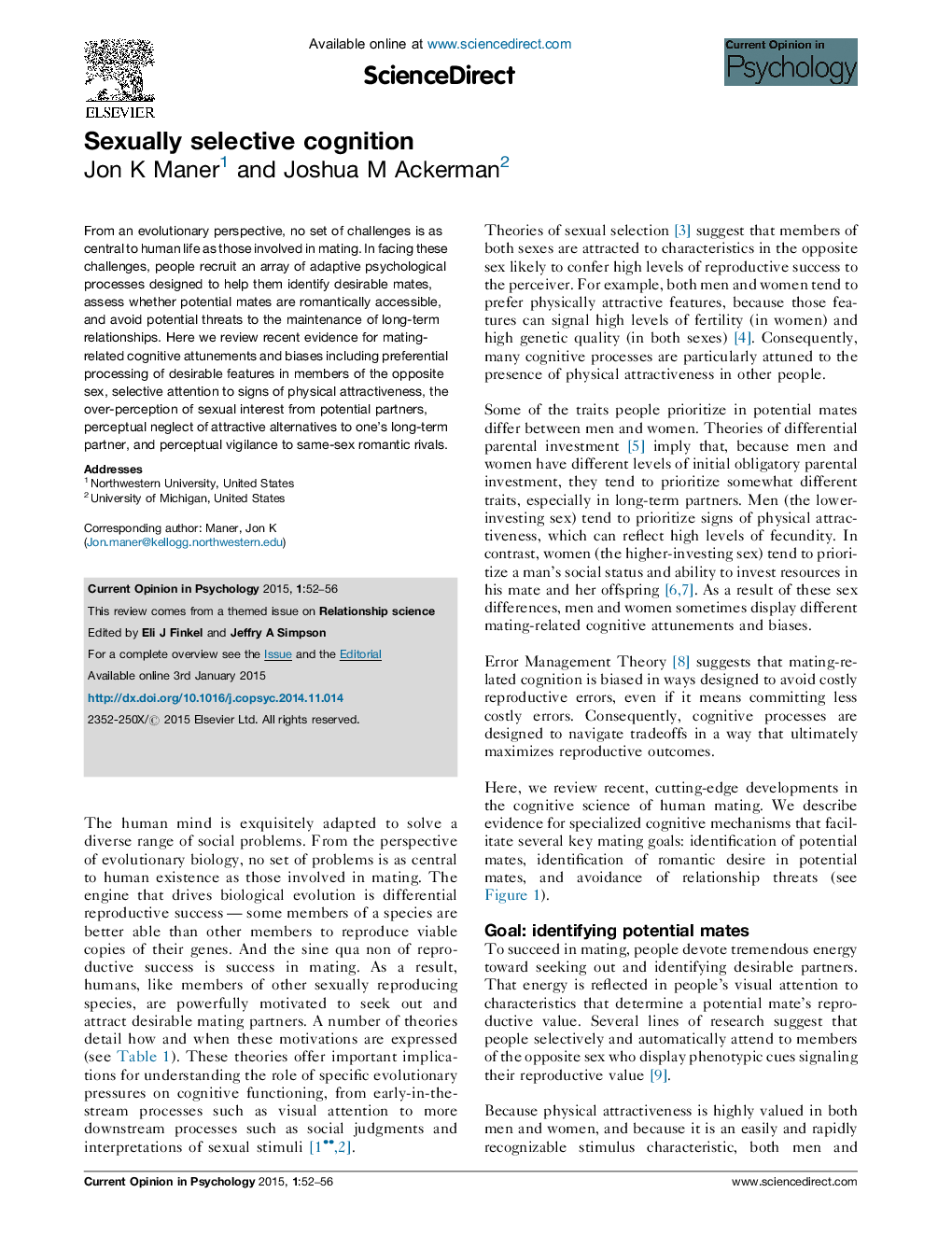| Article ID | Journal | Published Year | Pages | File Type |
|---|---|---|---|---|
| 879403 | Current Opinion in Psychology | 2015 | 5 Pages |
•Success at mating is the engine that drives human evolution.•A range of cognitive mechanisms facilitate important mating-related goals.•Recent research highlights mechanisms that help people succeed in the mating arena.
From an evolutionary perspective, no set of challenges is as central to human life as those involved in mating. In facing these challenges, people recruit an array of adaptive psychological processes designed to help them identify desirable mates, assess whether potential mates are romantically accessible, and avoid potential threats to the maintenance of long-term relationships. Here we review recent evidence for mating-related cognitive attunements and biases including preferential processing of desirable features in members of the opposite sex, selective attention to signs of physical attractiveness, the over-perception of sexual interest from potential partners, perceptual neglect of attractive alternatives to one's long-term partner, and perceptual vigilance to same-sex romantic rivals.
